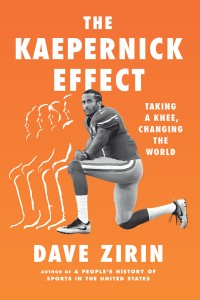Si è svolta la prima riunione del nuovo direttivo dell’International Society of Sport Psychology. Ogni partecipante ha presentato se stesso e sono stati definiti alcuni punti da realizzare in questo prossimo quadriennio.
inside excellent life
Si è svolta la prima riunione del nuovo direttivo dell’International Society of Sport Psychology. Ogni partecipante ha presentato se stesso e sono stati definiti alcuni punti da realizzare in questo prossimo quadriennio.
10 pensieri di José Mourinho
La leadership dell’allenatore deve essere sostenuta da alcune caratteristiche psicologiche che sono indispensabili per svolgere per guidare una squadra.
Questo uomo è l’unico ad avere corso la prima maratona di New York nel 1970 e correre la 50° la prossima domenica. Il suo nome è Larry Trachtenberg

 Riveting and inspiring first-person stories of how “taking a knee” triggered an awakening in sports, f from the celebrated sportswriter
Riveting and inspiring first-person stories of how “taking a knee” triggered an awakening in sports, f from the celebrated sportswriter
“The Kaepernick Effect reveals that Colin Kaepernick’s story is bigger than one athlete. With profiles of courage that leap off the page, Zirin uncovers a whole national movement of citizen-athletes fighting for racial justice.” —Ibram X. Kendi, National Book Award–winning author of Stamped from the Beginning and How to Be an Antiracist
In 2016, amid an epidemic of police shootings of African Americans, the celebrated NFL quarterback Colin Kaepernick began a series of quiet protests on the field, refusing to stand during the U.S. national anthem. By “taking a knee,” Kaepernick bravely joined a long tradition of American athletes making powerful political statements. This time, however, Kaepernick’s simple act spread like wildfire throughout American society, becoming the preeminent symbol of resistance to America’s persistent racial inequality.
Critically acclaimed sports journalist and author of A People’s History of Sports in the United States, Dave Zirin chronicles “the Kaepernick effect” for the first time, through interviews with a broad cross-section of professional athletes across many different sports, college stars and high-powered athletic directors, and high school athletes and coaches. In each case, he uncovers the fascinating explanations and motivations behind a mass political movement in sports, through deeply personal and inspiring accounts of risk-taking, activism, and courage both on and off the field.
A book about the politics of sport, and the impact of sports on politics, The Kaepernick Effect is for anyone seeking to understand an essential dimension of the new movement for racial justice in America
SYSTEMATIC REVIEW Olympic Sports Science—Bibliometric Analysis of All Summer and Winter Olympic Sports Research
G.P. Millet, F. Brocherie e J. Burtscher. Front. Sports Act. Living, 20 October 2021
We took this rare opportunity to quantify and analyze the main bibliometric parameters (i.e., the number of articles and citations) across all Olympic sports to weigh and compare their importance and to assess the structure of the “sport sciences” field. The present review aims to perform a bibliometric analysis of Olympic sports research. We quantified the following topics: (1) the most investigated sports; (2) the main journals in which the studies are published; (3) the main factors explaining sport-specific scientific attractiveness; (4) the influence of being in the Olympic programme, economic weight, and local influences on research output; and (5) which research topic is the most investigated across sports.
This comprehensive review provides interesting outcomes that are summarized briefly here and discussed afterwards:
Surprisingly, in every sport, the number of publications on psychology-related topics is quite low. Only for curling, shooting, and modern pentathlon are >10% of the sport-specific publications related to psychology, followed by table tennis. All these sports require extreme accuracy and self-control. The possibility that this low representation of psychological articles relates to the applied methodology (e.g., the database searched was PubMed) cannot be excluded, but most of the leading sport psychology journals (e.g., Journal of Sport & Exercise Psychology) were included in our search. These findings thus could also indicate that sport psychology is less represented than other scientific areas (physiology, medicine) in the literature. The potential underrepresentation of sport psychology should encourage sport psychologists or mental coaches to publish more of their research since there is no doubt that mental skills are an important aspect of performance in all sports.